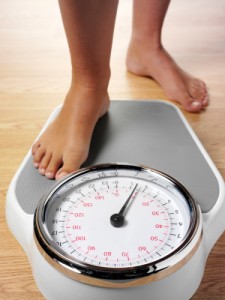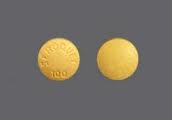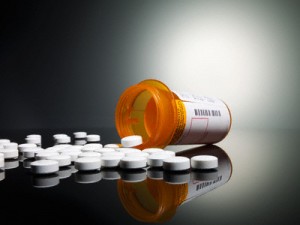Obesity is associated with reduce cortical thickness in bipolar disorders
Sean R. McWhinney et al reported in Psychological Medicine (2023) that obesity was associated with reduced cortical thickness (but not surface area) in most areas of the brain in 2832 participants.
Editors Note: Patients and clinicians should try to prevent and reduce weight gain using the best tolerated medications from the outset and helping with weight loss by various measures. These can include the anticonvulsants topiramated and zonisamine, the combination of bupropion and naltrexone, and the use of new anti-diabetic drugs such as Jardiance and Farxiga that have weight loss (greater than with metformin) as a side effect. Prescribing a good diet and regular exercise is also indicated. Reducing obesity will likely make you live longer and maybe could even make you smarter.
Weight Gain is a Common Issue with Antidepressants, But Buproprion is an Exception
A 2016 study by researcher David Arterburn and colleagues in the Journal of Clinical Medicine suggests that taking an antidepressant for two years is associated with an increase in body weight. Luckily, bupropion (trade name Wellbutrin) is an exception that may be a good choice for obese or overweight patients.
The researchers analyzed links between which antidepressants patients in a large health system in Washington State were prescribed and their body weight two years later.
The researchers used fluoxetine (Prozac) as a reference. Most antidepressants did not differ significantly from fluoxetine in terms of the weight gain experienced by people taking the drug.
There were a few exceptions. Compared to non-smoking fluoxetine users, who gained an average of 4.6 pounds in two years, non-smoking bupropion users actually lost weight—an average of 2.4 pounds. (Smokers taking bupropion still gained an average of 6.9 pounds.)
Sertraline (Zoloft) was another exception. Sertraline users gained more than users of other antidepressants—an average of 10.5 pounds over two years.
Metformin Effective for Treating Antipsychotic-Induced Amenorrhea, Weight Gain, and Insulin Resistance in Women
 Treatment with antipsychotics often has side effects such as amenorrhea (loss of the menstrual period) and weight gain that make sticking to a treatment regimen difficult for some patients. A 2012 study by Wu et al. in the American Journal of Psychiatry suggests that the drug metformin, often used to treat diabetes, can reverse these changes. The 84 female patients recruited for the study were being treated for a first episode schizophrenia, were on one antipsychotic, and had experienced amenorrhea for several months. They received either placebo or 1000mg/day of metformin in addition to their antipsychotic treatment for six months. Seventy-six women completed the trial.
Treatment with antipsychotics often has side effects such as amenorrhea (loss of the menstrual period) and weight gain that make sticking to a treatment regimen difficult for some patients. A 2012 study by Wu et al. in the American Journal of Psychiatry suggests that the drug metformin, often used to treat diabetes, can reverse these changes. The 84 female patients recruited for the study were being treated for a first episode schizophrenia, were on one antipsychotic, and had experienced amenorrhea for several months. They received either placebo or 1000mg/day of metformin in addition to their antipsychotic treatment for six months. Seventy-six women completed the trial.
Metformin was able to reverse the side effects in many of the women. Menstruation returned in 28 of the patients taking metformin compared to only two patients taking placebo. Among those on metformin, body mass index (BMI) decreased by a mean of 0.93, compared to a mean increase in those on placebo (0.85). Insulin resistance improved in the women on metformin as well.
Editor’s Note: Metformin can also delay the onset of type II diabetes in those in the borderline diabetic range. The weight loss on metformin was not spectacular and other options include the combination of the antidepressant bupropion (Wellbutrin) and the opiate antagonist naltrexone (Revia, 50mg/day), monotherapy with topiramate (Topamax), the fixed combination of topiramate and phentermine (Qsymia), or monotherapy with zonisamide (Zonegran).
Quetiapine (Seroquel) May Be Effective in Childhood Mania
 Gagan Joshi performed an 8-week open study of quetiapine in 30 preschool children and 19 school-age children. The mean dose was 176 mg/day on average for the preschool children, and 248 mg/day for the school age children, and both appeared highly effective in treating manic symptomatology. At the 57th Annual Meeting of the American Academy of Child and Adolescent Psychiatry (AACAP) in October 2010, Joshi reported that while the drug was generally well tolerated, it was associated with significant weight gain; the preschoolers gained 3.1 lbs on average in the 8-week period, while the school age children gained an average of 7.4 lbs.
Gagan Joshi performed an 8-week open study of quetiapine in 30 preschool children and 19 school-age children. The mean dose was 176 mg/day on average for the preschool children, and 248 mg/day for the school age children, and both appeared highly effective in treating manic symptomatology. At the 57th Annual Meeting of the American Academy of Child and Adolescent Psychiatry (AACAP) in October 2010, Joshi reported that while the drug was generally well tolerated, it was associated with significant weight gain; the preschoolers gained 3.1 lbs on average in the 8-week period, while the school age children gained an average of 7.4 lbs.
Atypical Antipsychotics with the Lowest Risk of Weight Gain
 There is a major problem of overweight and obesity in the US, with about 50% of the population affected. Patients with mood disorders, and particularly bipolar disorder, appear to be at increased risk for weight gain, which often accompanies depression. Thus, it is important that when treating these patients, doctors prescribe medications with low likelihood of weight gain.
There is a major problem of overweight and obesity in the US, with about 50% of the population affected. Patients with mood disorders, and particularly bipolar disorder, appear to be at increased risk for weight gain, which often accompanies depression. Thus, it is important that when treating these patients, doctors prescribe medications with low likelihood of weight gain.
Among the atypical antipsychotics that are widely used not only in schizophrenia but also in bipolar disorder and sometimes as adjunctive treatments in unipolar depression, there are wide differences in potential for weight gain and alterations in metabolic indices such as cholesterol, triglycerides, and blood glucose. Clozapine and olanzapine convey the greatest risk for abnormalities in these indices; risperidone and quetiapine convey moderate risk, and aripiprazole and ziprasidone are the least likely to affect metabolic indices. Newly approved lurasidone also has a mild side-effects profile.
The atypical ziprasidone (Geodon) appears to be truly weight-neutral and to have minimal impact on metabolic indices, but is not widely used due to two potential complications, neither of which must necessarily cause problems. One is the difficulty of dose titration with this drug. Surprisingly, low doses of the drug may be somewhat activating. (Atypicals are usually sedating.) Studies suggest that starting treatment with higher doses or increasing doses more quickly may be better tolerated. So rather than starting at 20mg twice a day, 40mg twice a day with rapid increases towards the range of 80mg twice a day may be associated with better tolerability. Read more
New Atypical Antipsychotic Lurasidone Appears To Improve Schizophrenia Without Weight-Gain Side Effects
 A study by a research group that included Antony Loebel of pharmaceutical company Sunovion; Steven Potkin of the University of California, Irvine; and Herbert Meltzer from Vanderbilt University summarizes data on a new atypical antipsychotic FDA-approved for treatment of schizophrenia. This agent, lurasidone (Latuda), was studied in a double-blind, placebo-controlled six-week trial in patients with schizophrenia.
A study by a research group that included Antony Loebel of pharmaceutical company Sunovion; Steven Potkin of the University of California, Irvine; and Herbert Meltzer from Vanderbilt University summarizes data on a new atypical antipsychotic FDA-approved for treatment of schizophrenia. This agent, lurasidone (Latuda), was studied in a double-blind, placebo-controlled six-week trial in patients with schizophrenia.
The drug is a new psychotropic agent that has a high affinity for dopamine D2 receptors and serotonin 5HT2A, 5HT1A, and 5HT7 receptors. (New data suggest that antagonistic effects on 5HT7 receptors may be related to antidepressant efficacy.)
In the study, patients were randomized to receive lurasidone at 80mg/day, lurasidone at 160mg/day, quetiapine XR at 600mg/day, or placebo. Evening dosing was used. Both dose levels of lurasidone resulted in significant degrees of improvement compared with quetiapine XR and placebo.
The side effects profile for lurasidone was also promising; patients were no more likely to gain weight on lurasidone than on placebo, while there was a mean 2kg weight increase on quetiapine XR. In addition, total cholesterol and triglycerides on both doses of lurasidone were similar to that on placebo, in contrast to small but significant increases on quetiapine XR.
There were significant increases in levels of prolactin (a hormone related to lactation, sex function, and bone demineralization) on lurasidone at both 80mg (+ 0.8mg/dl) and 160mg (+ 3mg/dl), while small decreases in prolactin were observed on quetiapine XR (-0.3 mg/dl) and on placebo (-0.8 mg/dl).
The data suggest that lurasidone is effective in the treatment of patients with acute exacerbation of schizophrenia, with significant effects occurring as early as day 4. This study had a low rate of adverse events. Read more
Reconsidering Ziprasidone (Geodon) for Kids with Bipolar Disorder
Ziprasidone has shown efficacy in pediatric BP I disorder (ages 10 to 17). Its metabolic profile is the most benign of the atypical antipsychotics, including being the only one that does not produce weight gain in children. None of the other metabolic indices increased either.
This drug is currently rarely used in children because of concerns about its effects on electrocardiogram (EKG), which have rarely been seen in clinical practice. Perhaps the overall assessment of its risk/benefit ratio should be re-evaluated.
We’ve posted before about ziprasidone’s benign side effects profile.


